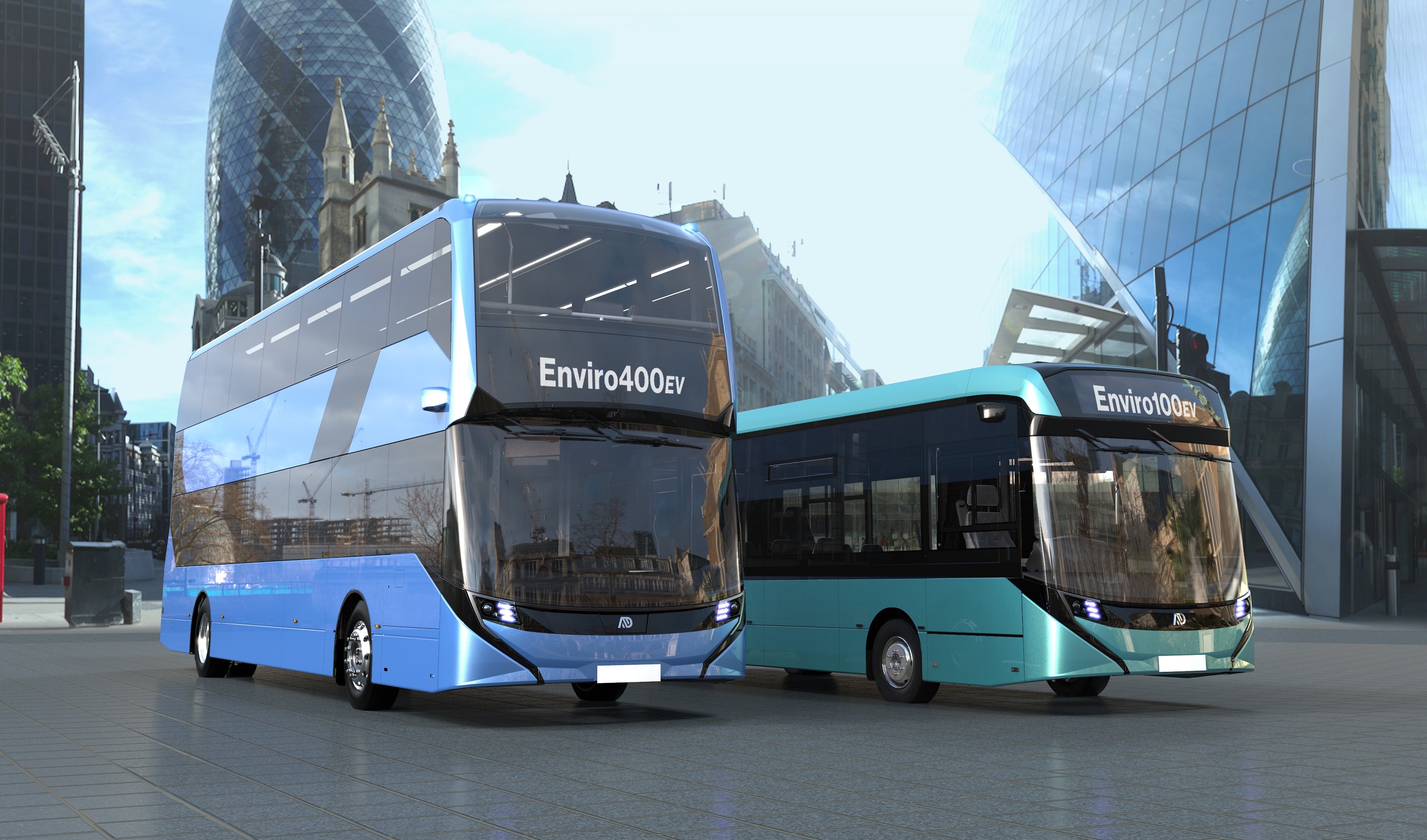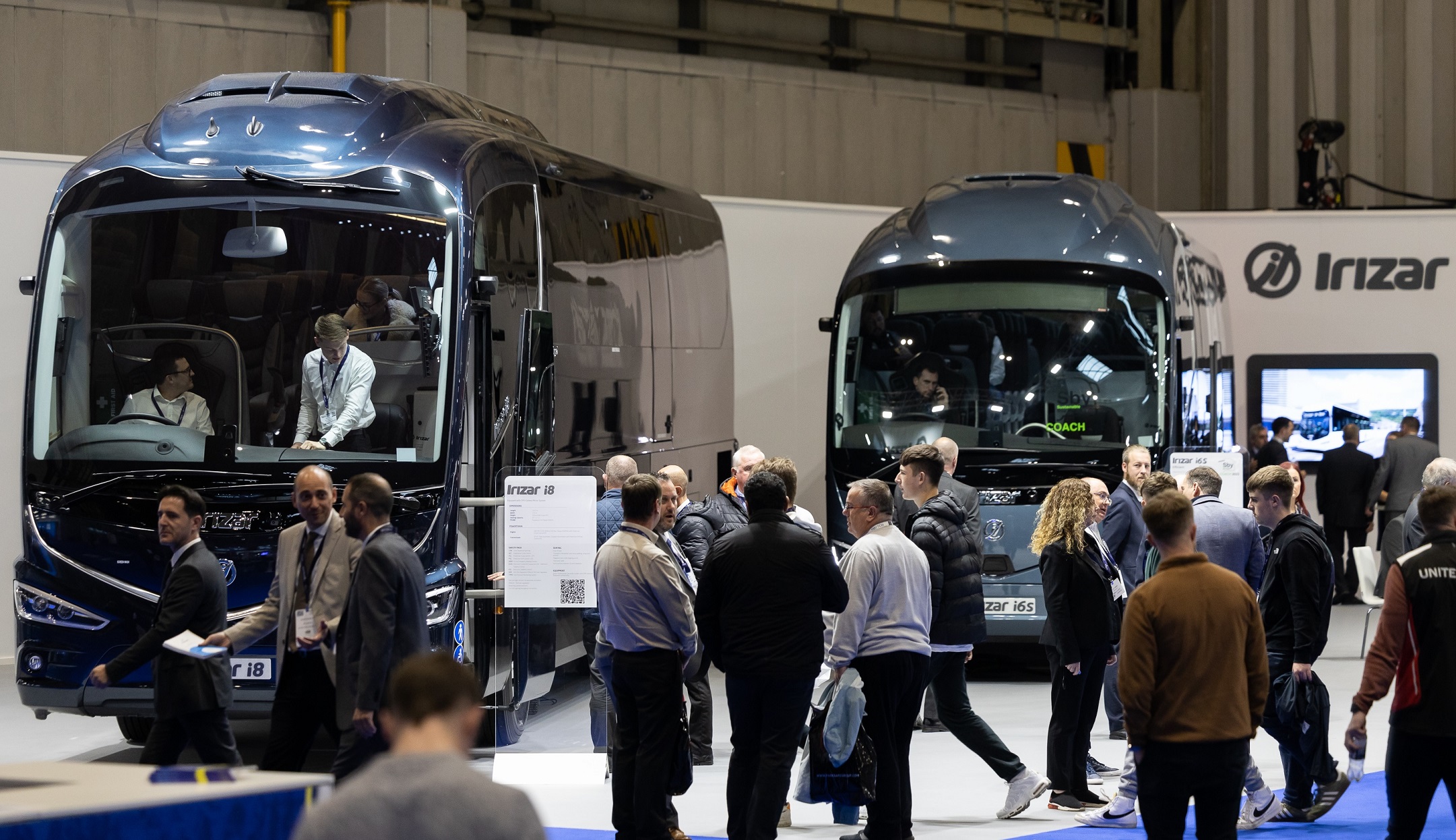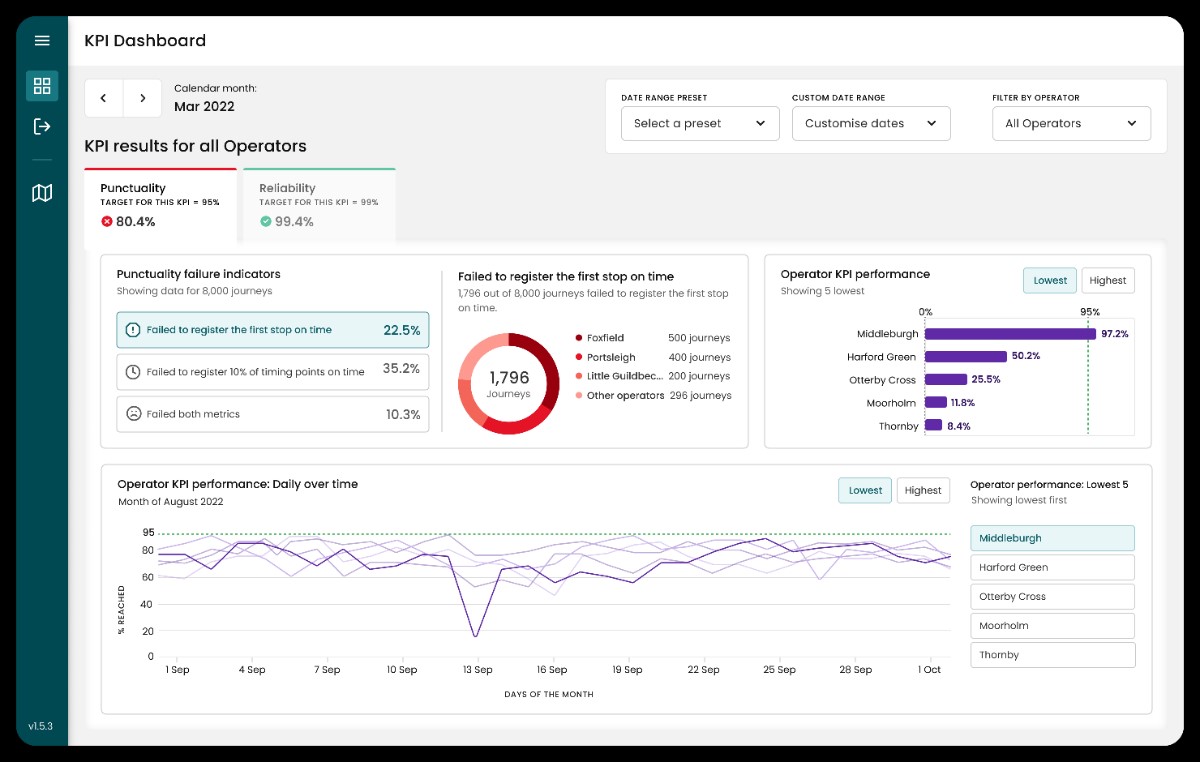Alexander Dennis has revealed details of its in-house battery-electric bus range that in the UK will open with the Enviro400EV double-decker and the Enviro100EV small single-decker. Orders for both have been taken, with first deliveries due in 2023.
As expected, the Voith Electrical Drive System (VEDS) package will be used, as in the Enviro400FCEV hydrogen fuel cell-electric double-decker and the tri-axle Enviro500EV for overseas markets. In the Enviro100EV, VEDS in medium-duty format will be deployed. The Enviro400EV will utilise the heavy-duty application, although a medium-duty fitment is possible later.
Strong range promises for Enviro100EV and Enviro400EV
While neither of the new battery-electric buses for the UK were shown complete at Euro Bus Expo, a rear chassis unit of the Enviro400EV was displayed. Alexander Dennis has designed its own energy storage containers, within which are batteries from Polish company Impact Clean Power Technology.
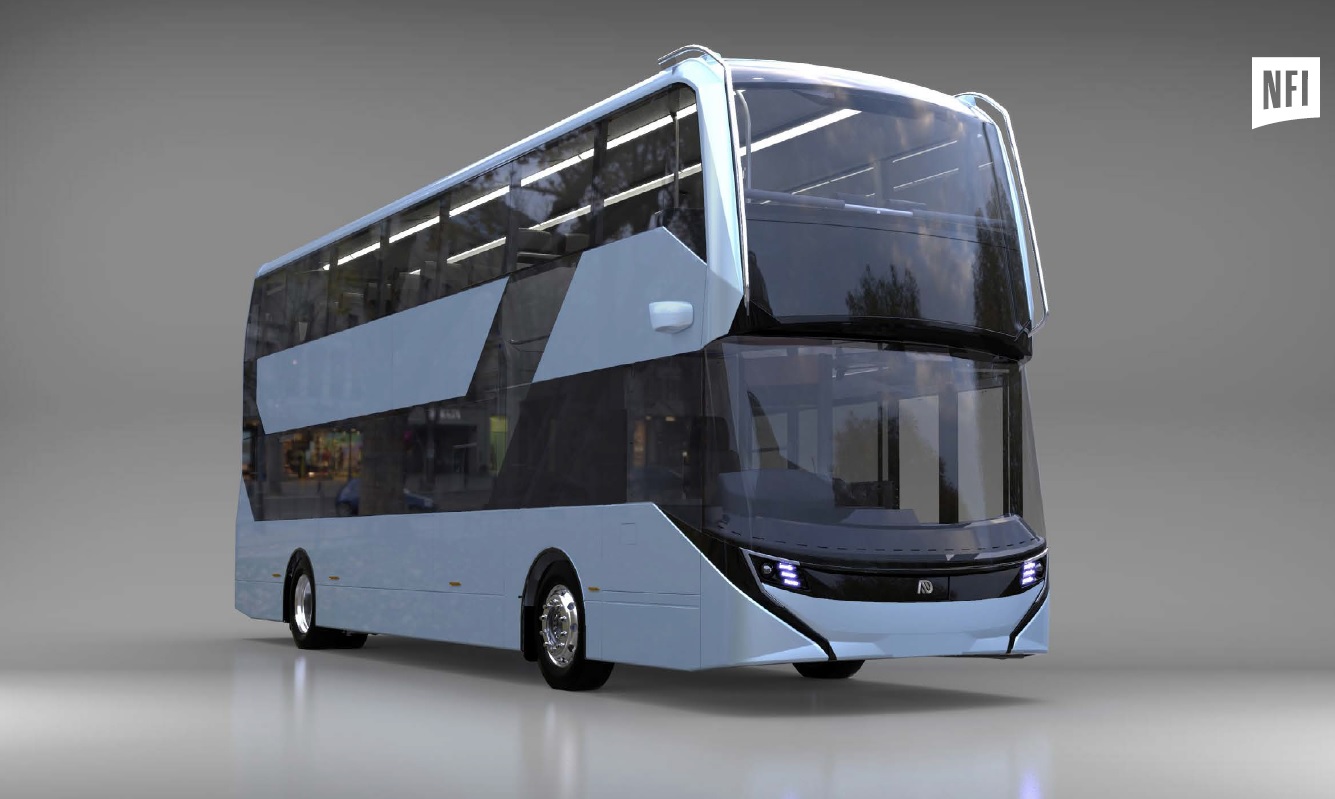
The Enviro400EV will have cells at the rear, within the chassis and under the staircase. 472kW/h of capacity will be standard, with 354kW/h optional.
Alexander Dennis says that the new double-decker will have a maximum capacity of 96 passengers, and a claimed range of up to 260 miles.
Notably, the OEM adds that the latter makes the Enviro400EV suitable for “interurban expresses” in addition to city work. It will be built at a length of 11.1m and at heights of 4.2m and 4.3m.
The Enviro100EV, meanwhile, is what Alexander Dennis calls “a gamechanger”. It will be 8.5m long and 2.35m wide, suiting it to a variety of roles. Up to 25 seated passengers, and a total capacity of 45, will be offered on the bus, which will ride on 17.5in wheels.
Perhaps most notable about the Enviro100EV is its claimed range. Either 236kW/h or 354kW/h of battery capacity can be specified, delivering endurance of up to 190 or 285 miles, respectively.
Opp charging compatibility included on new models
Each of the new buses will be charged via dual-sided DC CCS2 plug-in connectors at up to 150kW. They are both also compatible with inverted pantograph-based opportunity replenishment at up to 300kW. While plug-in AC charging is yet to be engineered, it is not ruled out should demand require.
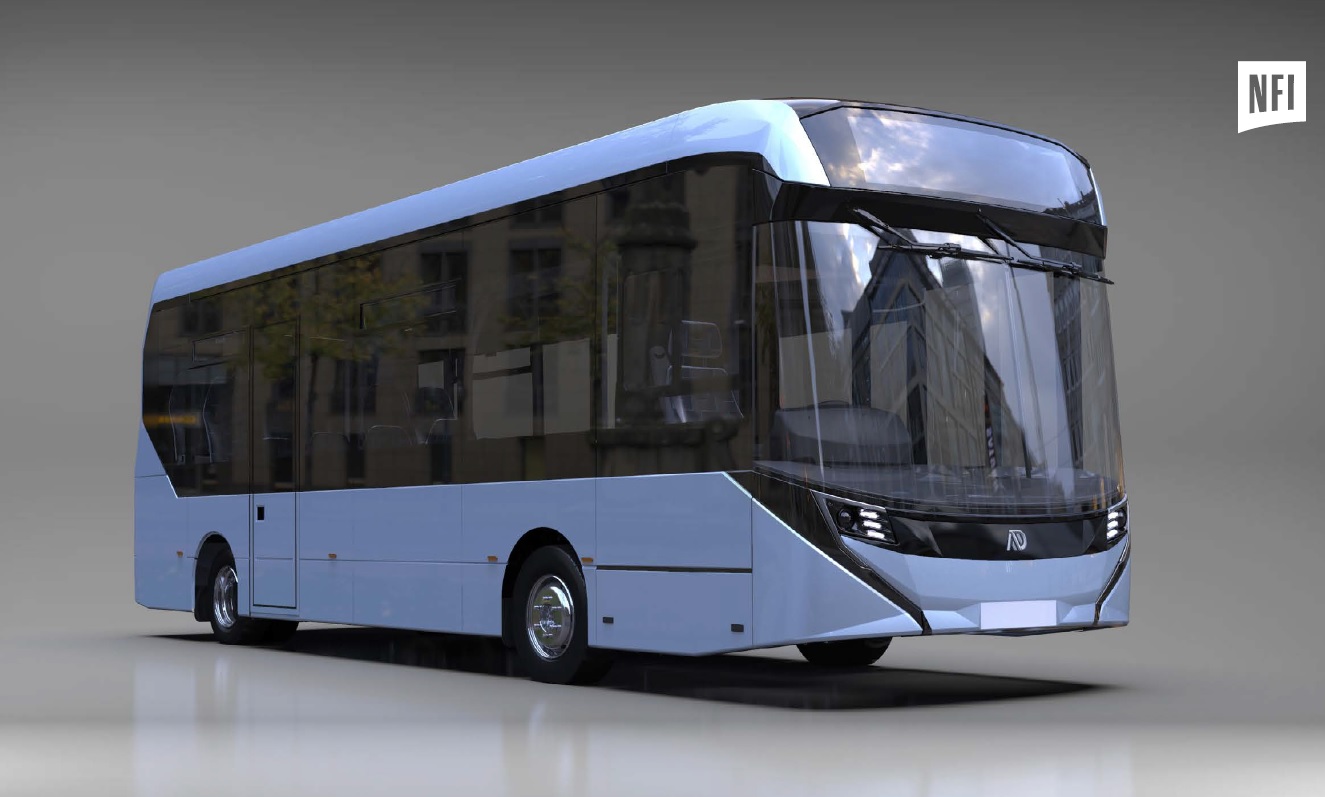
Alexander Dennis Group Engineering Director Chris Gall says that the manufacturer believes 8.5m is the “sweet spot” for the Enviro100EV, although he adds that possibility exists for a 7.9m variant later.
The Enviro400EV delivers a flat lower deck floor to beyond the ZF rear axle. Such an approach is indicative of the strategy adopted in designing the newcomers, Mr Gall continues.
“We started with passengers and a mission to make the new buses as comfortable as possible,” he says. “They needed to be as user-friendly as possible, with us fitting the technology around that.”
BYD work continues alongside Enviro100EV and Enviro400EV
The in-house battery-electric models from Alexander Dennis will be followed by an Enviro200EV, but President and Managing Director Paul Davies explains that the Scottish OEM’s relationship with partner BYD is unaffected by the range extension. BYD ADL Enviro200EV and Enviro400EV products remain available and there is no intention of dropping them.
Battery chemistry on the Alexander Dennis range is NMC, but the manufacturer is careful to say that its approach is futureproof. As energy storage technology develops, it will be possible to update the buses with subsequent generations of batteries. That, the OEM observes, will allow buyers to benefit from mid-life upgrades without a need to re-engineer the vehicles.
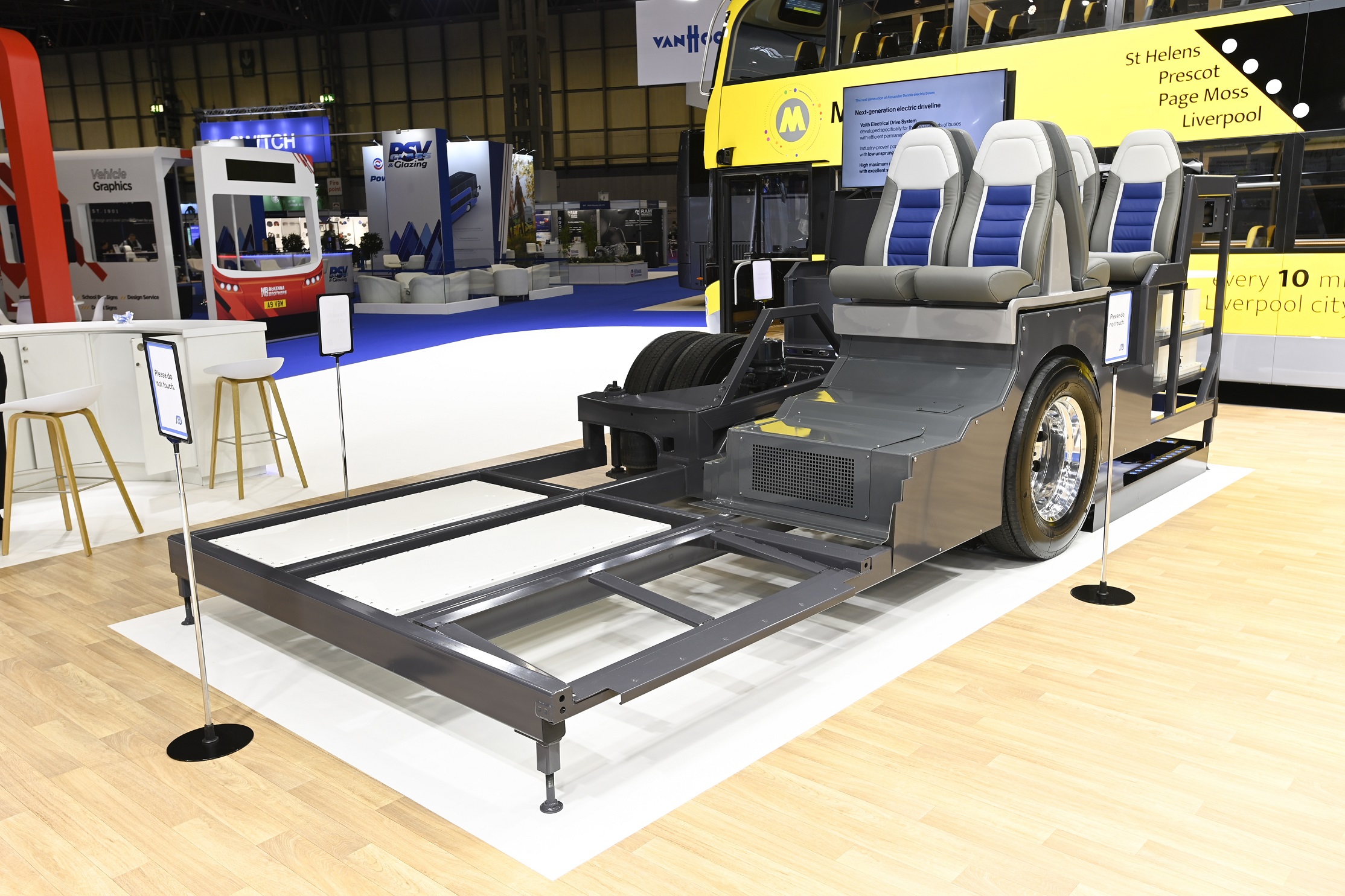
Use of VEDS in the buses represents further success for Voith with UK bus manufacturers. Those customers currently account for around 70% of VEDS production.
Alexander Dennis says it chose the VEDS package because of efficiency and serviceability. The heavy-duty motor as shown in the Enviro400EV is expected to have a 20-year useful life.
The zero-emission platform developed by Alexander Dennis is compatible with hydrogen fuel cell-electric propulsion. The manufacturer showed such a product in the Enviro400FCEV for the Liverpool City Region Combined Authority at Euro Bus Expo, and Mr Gall says the Enviro100EV and future Enviro200EV products could be developed “fairly quickly” into hydrogen-fuelled models.





















